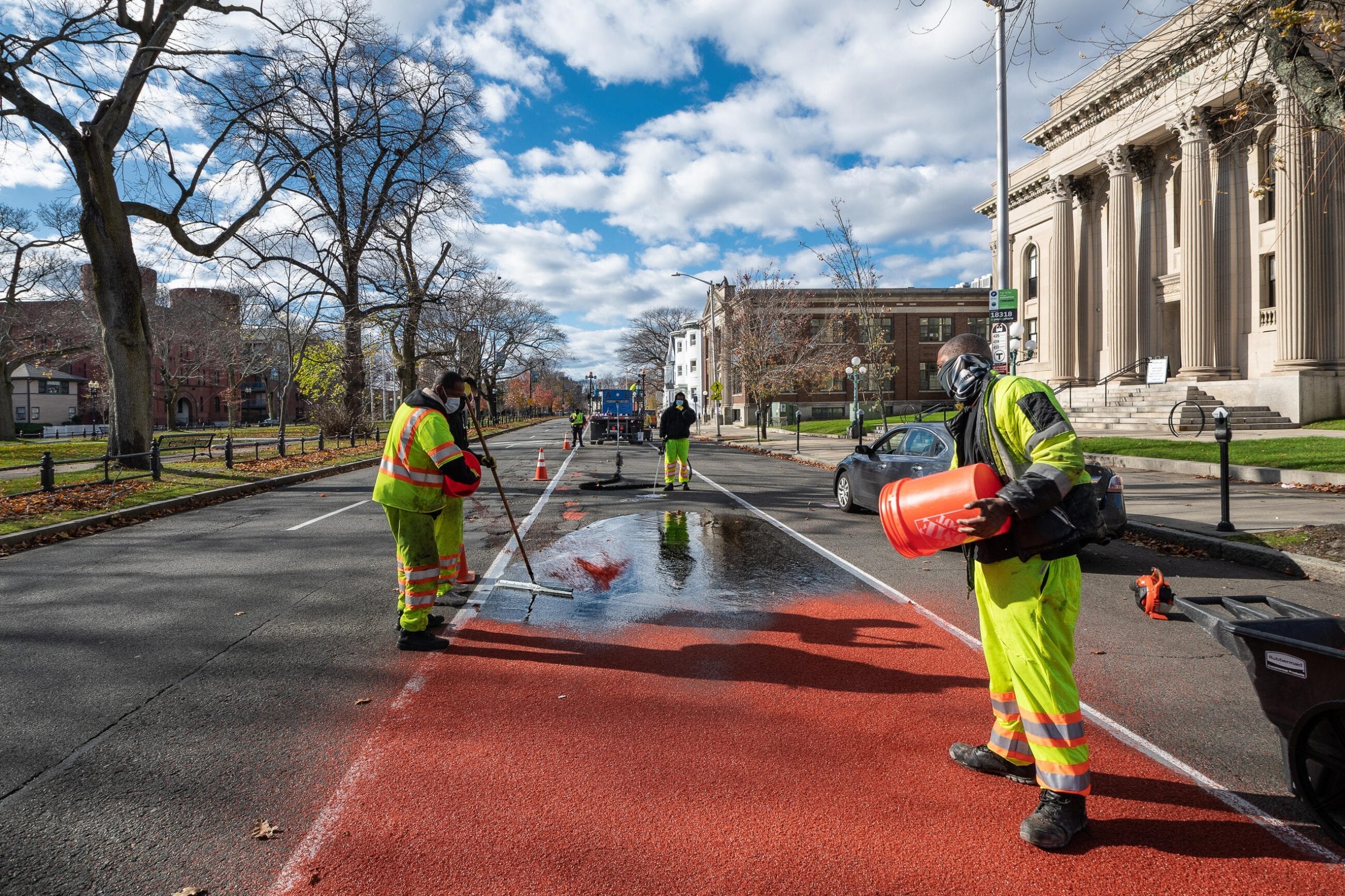LYNN — The city of Lynn, MassDOT, and MBTA have announced the completion of a series of quick-build, multimodal road treatments, including shared bus-bike lanes and dedicated bike lanes, along North Common Street, South Common Street, and Market Street.
The quick-build changes are part of a Baker-Polito administration effort to support safe, sustainable transportation modes in the wake of the COVID-19 pandemic.
“This is a vital link for moving Lynn residents through their city and to other critical connections, whether it is to the Northern Strand Community Trail or the Blue Line at Wonderland,” said Acting Transportation Secretary Jamey Tesler.
In 2019, the Massachusetts Department of Transportation (MassDOT), in partnership with the city of Lynn, launched the Lynn Transit Action Plan to identify strategies to make transit service faster and more reliable for residents.
After the plan recommended the project, MassDOT worked quickly to advance the design.
“Ridership on Lynn bus routes like the 455 have been resilient throughout the pandemic,” said Massachusetts Bay Transportation Authority (MBTA) General Manager Steve Poftak, who added that systemwide bus ridership is around 44 percent, compared to pre-COVID data, but ridership for the Route 455 has remained one of the most durable, maintaining about 60 to 65 percent of its pre-COVID passengers.
“These are essential trips, and the bus lane on North Common Street will make transit service safer and more reliable for Lynn riders,” Poftak said. “We are grateful to our partners, Mayor (Thomas M.) McGee, and the city of Lynn and MassDOT for helping bring this to fruition.”
The need for bus priority on North Common Street was identified as a recommendation through MassDOT’s Lynn Transit Action Plan, an ongoing planning initiative in partnership with the city to make it easier for Lynn residents to get where they need to go with public transit.
The plan aims to identify strategies for faster, more reliable transit services for the city, into Boston, and throughout the North Shore through improvements to bus, subway, ferry, and commuter rail service.
According to MassDOT, at the time of analysis, bus riders experienced delays of up to four minutes during peak travel times along the .75 mile-long roadway.
The project also provides traffic calming benefits that improve safety for all road users by better organizing previously wide streets along several sections. Narrowing lanes through striping has been shown to encourage slower speeds and greater safety. The bike lane elements are considered a key connection between the Northern Strand Community Trail near Western Avenue and downtown Lynn.
In June 2020, the Baker-Polito administration launched the Shared Streets and Spaces program to support quick-build projects that can bring meaningful benefits to cities and towns. The program is modeled after the administration’s 2016 Complete Streets Funding Program, which, as of January 2020, has awarded $46 million to cities and towns for municipal projects improving infrastructure to provide safety for pedestrians, bicyclists, motorists, and public transportation customers.
Building on the success of the Shared Streets and Spaces initiative, MassDOT extended the program to help municipalities address the particular challenges of winter amid the ongoing public health crisis.
Shared Streets and Spaces provided cities and towns with grants as small as $5,000 and as large as $500,000 to improve plazas, sidewalks, curbs, streets, parking areas, and other public spaces in support of public health, safe mobility, and renewed commerce.
“These improvements will make it easier, safer, and more reliable for Lynn residents to get around their city and access workforce opportunities, education, and essential services during the current crisis and moving forward,” said McGee.
Elyse Carmosino can be reached at [email protected].

